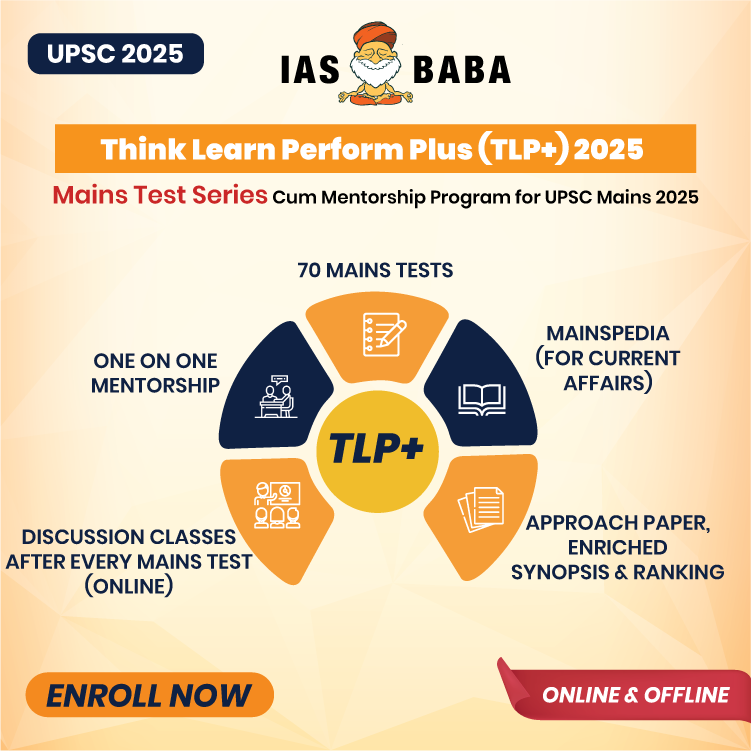IASbaba's Daily Current Affairs Analysis
IAS UPSC Prelims and Mains Exam – 5th February 2020
Archives
(PRELIMS + MAINS FOCUS)
T.N. MLAs’ disqualification
Part of: GS Prelims –Polity and GS-II- Constitution
In news:
- The Supreme Court gave Tamil Nadu Speaker a week’s time to inform when he will take cognisance of the disqualification petitions filed under the Tenth Schedule (anti-defection law) for voting against the confidence motion moved by Chief Minister Edappadi Palaniswami in February 2017.
From Prelims Point of view:
Tenth Schedule (anti-defection law)
- The law is necessary because when a voter decides to cast his/her vote for a candidate, he/she is considers not only the candidate but also the party that the candidate stands for and the manifesto the party presented. Hence, when the defection takes place, it’s the electorate that is let down, making a mockery of democracy.
- That is why in the year 1985, amendment to the constitution was effected and Xth schedule was introduced.
- The amendment and the schedule are connected to Article 102 and Article 191 of the Constitution. Both the articles pertain to disqualification for membership.
- The purpose of this mini-legislation within the constitution is to create a deterrent for any kind of defections and it prescribes disqualification for doing so.
‘Healing Christ’ statue enters URF book of world records
Part of: GS Prelims –Art & Culture and GS-I- Art & Culture
In news:
- Healing Christ, in Thiruvalla Kerala has entered the Universal Records Forum’s (URF) book of world records.
From Prelims Point of view:
Healing Christ:
- The statue was sculpted with an alloy of zinc, copper, and velutheeyam
- Velutheeyam is an alloy of tin and aluminium
Universal Records Forum
- Universal Records Forum encourage every record holder and give them the deserved platform to showcase their talent, stamina, endurance and achievement in front of the world.
NGT cancels eco-clearance to high-rise near Kaikondrahalli lake
Part of: GS Prelims –Environment and GS-III Conservation
In news:
- Eco Clearance was a ‘breach of environment norms, violation of municipal laws and buffer zone regulations’.
- The EC was granted in January 2018 by the Karnataka State Environment Impact Assessment Authority (SEIAA).
From Prelims Point of view:
- Kaikondrahalli Lake, a small urban lake in Bengaluru
National Green Tribunal :
- Set up under the National Green Tribunal Act (2010)
- Effective and expeditious disposal of cases relating to environmental protection and conservation of forests and other natural resources.
- India became the third country in the world to set up a specialised environmental tribunal, (Australia and New Zealand)
- Disposal of applications or appeals finally within 6 months of filing of the same.
7 in 100 Anganwadi beneficiaries in cities
In news:
- For every 100 anganwadi beneficiaries in the country, only seven are in urban areas.
Impact: because of a severe lack of anganwadis in cities, leading to poor coverage of the government’s flagship programme in early childhood development.
From Prelims Point of view:
Anganwadi
- Anganwadis or day-care centres are set up under the Integrated Child Development Services (ICDS) by the Women and Child Development Ministry to provide a package of six services.
- The services include supplementary nutrition; pre-school non-formal education; immunisation, nutrition and health education; as well as referral services.
- The aim of the scheme is to reduce infant mortality and child malnutrition.
- Beneficiaries include children in the age group of six months to six years, and pregnant women and lactating mothers.
Integrated Child Development Services (ICDS):
- Integrated Child Development Services (ICDS) is an Indian government welfare programme which provides food, preschool education, and primary healthcare to children under 6 years of age and their mothers. These services are provided from Anganwadi centres established mainly in rural areas and staffed with frontline workers.
(MAINS FOCUS)
Indian Polity & Federalism
Topic: General Studies 2:
- Bilateral, regional and global groupings and agreements involving India and/or affecting India’s interests
International Maritime Organization (IMO) & India
Context
IMO mandates that merchant ships should not burn fuel with Sulphur content more than 0.5% beginning January 1, 2020. India’s negligible presence and interventions in IMO have been affecting its interests.
About International Maritime Organization
- It was established by UN convention in Geneva on 17 March 1948 and met for the first time in January 1959.
- IMO is responsible for measures to improve the safety and security of international shipping and to prevent pollution from ships.
- It is also involved in legal matters, including liability and compensation issues and the facilitation of international maritime traffic
- It currently has 174 Member States. India joined in 1959.
Role of IMO
- The IMO is not responsible for enforcing its policies. There is no enforcement mechanism to implement the policies of the IMO.
- The IMO, like any other UN agency, is primarily a secretariat, which facilitates decision-making processes on all maritime matters through meetings of member states.
- The binding instruments are brought in through the conventions — to which member states sign on to for compliance
The Third IMO GHG Study 2014 estimated that international shipping emitted 796 million tonnes of CO2 in 2012, accounting for about 2.2% of the total global anthropogenic CO2 emissions for that year,
Also, IMO states that emissions from international shipping could grow between 50% and 250% by 2050 mainly due to the growth of the world maritime trade.
IMO regulations to reduce sulphur oxides (SOx) emissions from ships first came into force in 2005, under the International Convention for the Prevention of Pollution from Ships (MARPOL Convention). Since then, the limits on sulphur oxides have been progressively tightened.
Significance of latest decision by IMO
- Previous Sulphur Limit was 3.5%, which was applicable to most parts of the world.
- If global shipping were a country, it would be the sixth largest producer of greenhouse gas emissions, therefore cleaner fuel will help reduce SOx emissions which reduces pollution.
- The new regulations will have major health and environmental benefits for the world, particularly for populations living close to ports and coasts.
Impact of new rules by IMO limiting Sulphur content
- Redesigning refineries including those in India so as to produce cleaner fuel- this entails capital investment and thus increased cost of fuel
- Increased freight costs due to increased cost of fuel which will have a cascading effect on retail prices of goods.
- Structural changes to Ships: Very-low-sulphur fuel would be incompatible with the engines and other vessel equipment. There have been instances of ships having been stranded after fine particles separated out from the fuel, damaging equipment and clogging up devices.
Dominance of Developed Countries in IMO
- To ensure that their maritime interests are protected, the European countries move their proposals in unison and voting or support are given en bloc.
- The European Union has a documented procedure on how to influence the IMO
- Prominent maritime nations have their permanent representatives at London (HQ) and are supported by a large contingent of domain experts from their maritime administration, seafarers and industry associations during the meeting
- These countries ensure that they have representation in every sub-committee, working group and even correspondence groups so that they are aware of the developments.
Inadequate Participation by India in IMO
- India’s permanent representative post in the IMO has remained vacant for the last 25 years.
- Representation at meetings is often through a skeletal delegation.
- The number of submissions made by India in the recent past has been few and not in proportion to India’s stakes in global shipping.
- There have also been obstacles in pushing issues which are of importance to India. A classic case was the promulgation of “High Risk Areas” by IMO in Arabian sea which led to increased insurance costs for shipping industry
- There was also great difficulty in introducing the indigenously designed NavIC in the worldwide maritime navigation system.
- The agenda and interventions pushed by the developed countries are not entirely pragmatic from the point of view of India’s interests with efforts to push products & companies based in West
Issue of High Risk Area
- IMO demarcated ‘High-Risk Areas’ when piracy was at its peak particularly by Somalian pirates.
- The IMO’s demarcation resulted in half the Arabian Sea and virtually the entire south-west coast of India being seen as piracy-infested, despite the presence of the Indian Navy and Coast Guard.
- The “Enrica Lexie” shooting incident of 2012, off the coast of Kerala, was a direct fallout of the demarcation.
- It took great efforts by India to revoke the promulgation.
Way forward
- IMO also needs to reduce nitrogen oxides (NOx) and ozone-depleting gases.
- At the earliest, India should fill the vacant post of the permanent representative at the IMO.
- India should have well-laid-out procedure and agenda to deal with procedures of IMO to further its interests.
- Promulgate new policies which makes the shipping industry in India adopt greener technologies
Connecting the dots
- Hong Kong International Convention for the Safe and Environmentally Sound Recycling of Ships a.k.a Hong Kong Convention
- Montreal Protocol
(TEST YOUR KNOWLEDGE)
Model questions: (You can now post your answers in comment section)
Note:
- Correct answers of today’s questions will be provided in next day’s DNA section. Kindly refer to it and update your answers.
- Comments Up-voted by IASbaba are also the “correct answers”.
Q 1. Which one of the following schedules of the Constitution of India contains provisions regarding anti-defection Act?
- Second Schedule
- Fifth Schedule
- Eighth Schedule
- Tenth Schedule
Q 2. Velutheeyam is
- a new species of snake found recently
- an alloy of tin and aluminium
- Classical dance of Kerala
- None of these
ANSWERS FOR 04 FEB 2020 TEST YOUR KNOWLEDGE (TYK)
| 1 | A |
| 2 | D |
| 3 | C |
MUST READ
About Navy:
About NRC’s Administrative burden:
About West Asia Political developments:
















